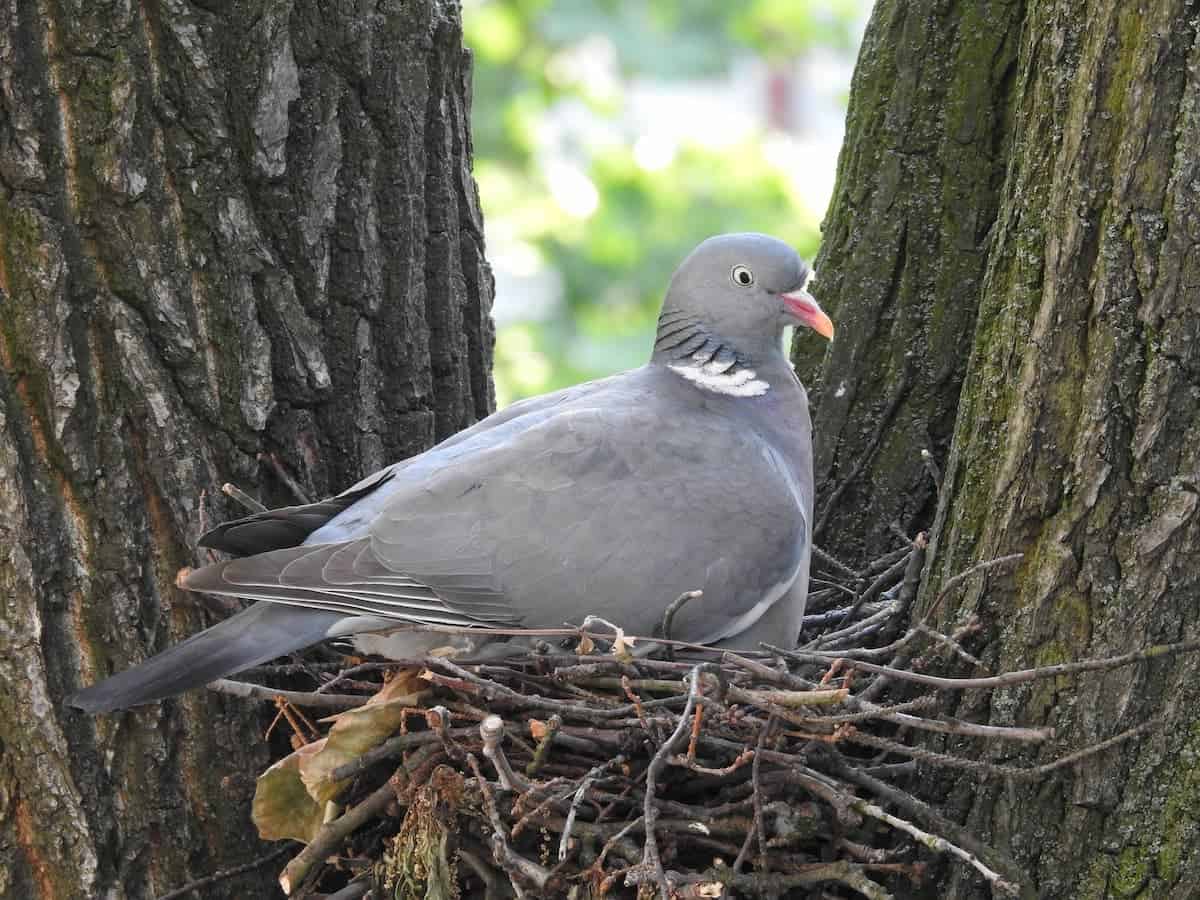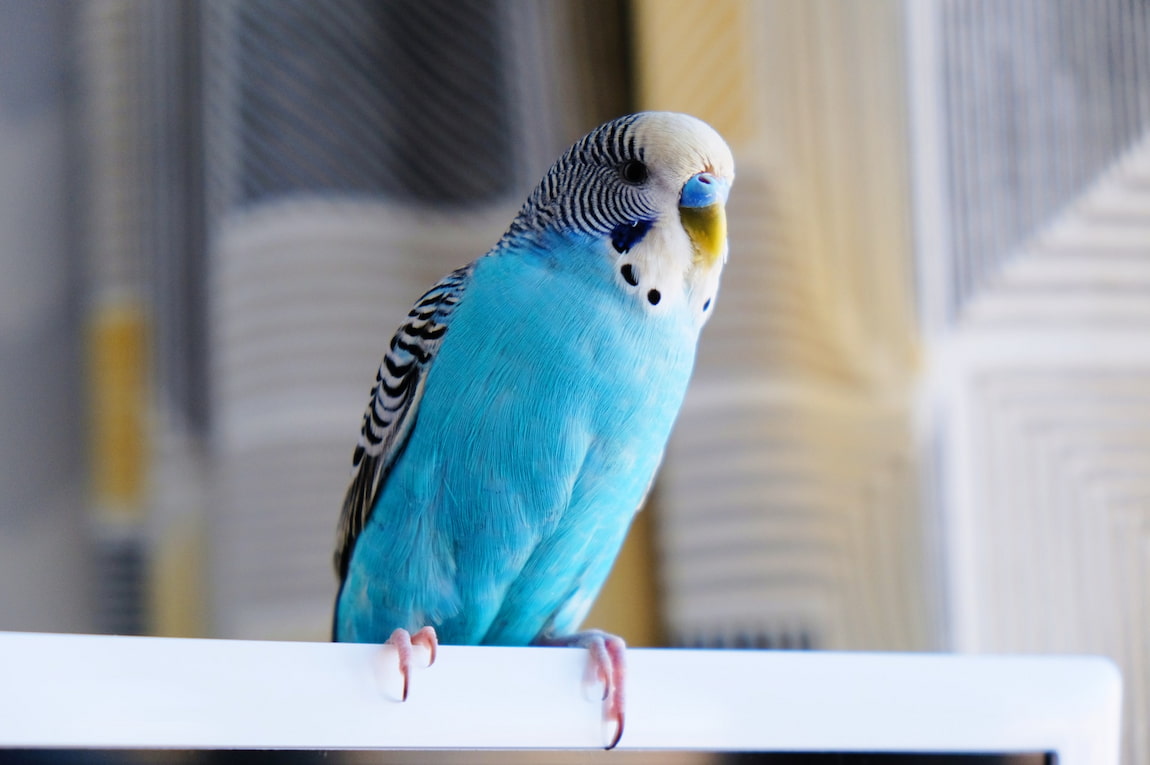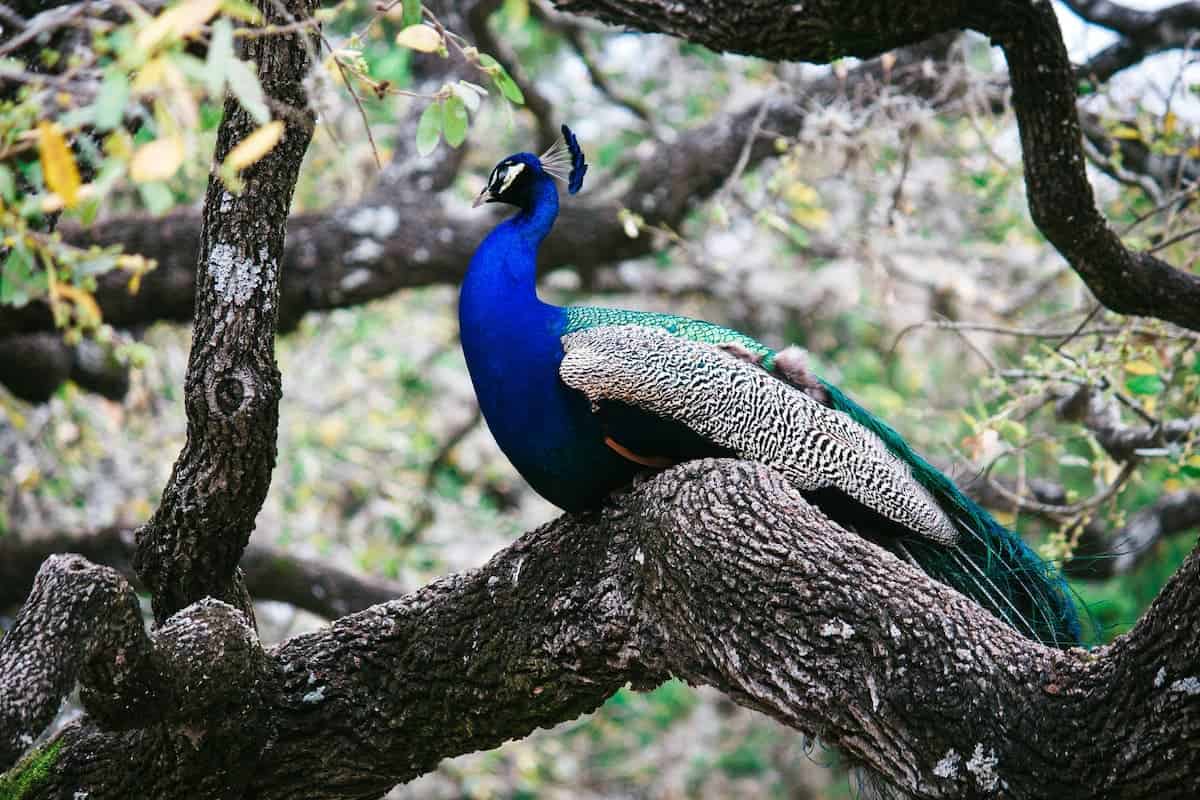Pigeons are a common sight whether you live in a city or in the countryside. Pigeons are usually seen flying around, perched in trees and on buildings in small groups, and scavenging for food wherever they can find it. Wood pigeons are the most common species and they are very adaptable birds, at home almost anywhere, meaning that you will likely see pigeons on a daily basis.
Pigeons also have a lot of natural predators, so it is important for them to stay alert to danger and find safe places to forage for food. But how do they stay safe during the night? Where do pigeons go to sleep?
If you have ever caught yourself thinking about this question, you are in the right place to find some answers. Here is a closer look at where pigeons go to sleep.
Where do pigeons sleep at night?
Pigeons have many natural predators that include foxes, owls, hawks, domestic cats, and even humans. Pigeons are also diurnal, which means they are more active during the day – they actually have poor night vision. So, when they need to sleep at night, it is important for pigeons to find a location that is safe from predators, whilst also providing them with the right amount of shelter from the elements. Pigeons also like to find locations to sleep that are close to reliable sources of food.
Provided that these conditions are met, pigeons are very adaptable and can sleep almost anywhere that keeps them safe and warm for the night.
You will likely find pigeons roosting in the branches of trees or within large bushes if you are in a rural area, taking advantage of the protection provided by the dense foliage against both predators and the weather. Pigeons that live near coastal areas are also happy to roost on cliff sides as they provide good protection from predators as well.
In towns and cities, there are far fewer airborne predators for pigeons to worry about – as hawks, owls, falcons and other predatory birds prefer to avoid urban environments – so pigeons are happy to sleep anywhere out of reach of humans, cats, and foxes. Pigeons will sleep on the ledges of buildings, the undersides of bridges, on lampposts, on electrical wires – just about anywhere that will keep them safe and warm for the night. Some of these locations can be exposed, but if the weather is fine, a pigeon will not mind.
Where do pigeons sleep in the day?
Though pigeons are diurnal and are much more active during the day, you may still find pigeons sleeping during the day from time to time to catch up on some rest.
As these periods of sleep during the day can better be classed as ‘power naps’ for pigeons, they are even less picky when choosing a place to sleep in the day. After all, foxes and cats are primarily nocturnal hunters, so pigeons have less to fear from them. This means that you may find pigeons sleeping on the ground during the day – though they will still try to stay out of the way of humans.
Of course, pigeons in cities are far more accustomed to human activity, so are happy to sleep almost anywhere during the day.
Do pigeons sleep in their nests?
As with all other birds, pigeons do sleep in their nests, but they do not do so year round. Pigeons build nests mainly to protect and incubate their eggs during the mating season and then to protect their young after they hatch.
During the incubation period, a pigeon will sleep in its nest, but after the eggs hatch, the adults will sleep nearby, leaving the young pigeons to sleep in the nest. Once the young have matured, the nest will be abandoned and the pigeons will resume their normal sleeping habits.
Do pigeons sleep on buildings?
Pigeons in urban areas definitely sleep on buildings. During colder weather, they take advantage of the many cracks and crevices that man-made structures provide for a bit of extra protection. During warmer weather, pigeons will happily perch on window ledges and rooftops – they are very versatile birds.
Can you stop pigeons sleeping on your buildings?
Many people regard pigeons as pests due to the amount of mess that they can make. Any areas where pigeons gather together will be littered with pigeon droppings, which can be unpleasant.
To stop pigeons sleeping on your buildings – particularly on window ledges – you can install slender spikes that will prevent the pigeons from landing and sleeping in that area. This is perfectly humane and will not harm the pigeons as they will simply fly away to find a better place to sleep.
Conclusion
Pigeons are versatile birds that are at home in both urban and rural environments. Whilst they have many predators, pigeons are able to avoid them as they sleep by choosing locations that are off the ground, out of sight and provide plenty of protection from the weather.
Pigeons can be found sleeping in trees or large bushes in the countryside, or on buildings, under bridges, on fences, lampposts, electrical wires and many other places in urban areas.
Pigeons spend most of their time sleeping at night, but will take short naps during the day in a similarly wide variety of locations, but adult pigeons will only sleep in nests whilst they are incubating their eggs. After the eggs hatch and the young mature, pigeons will resume their normal sleeping habits.





